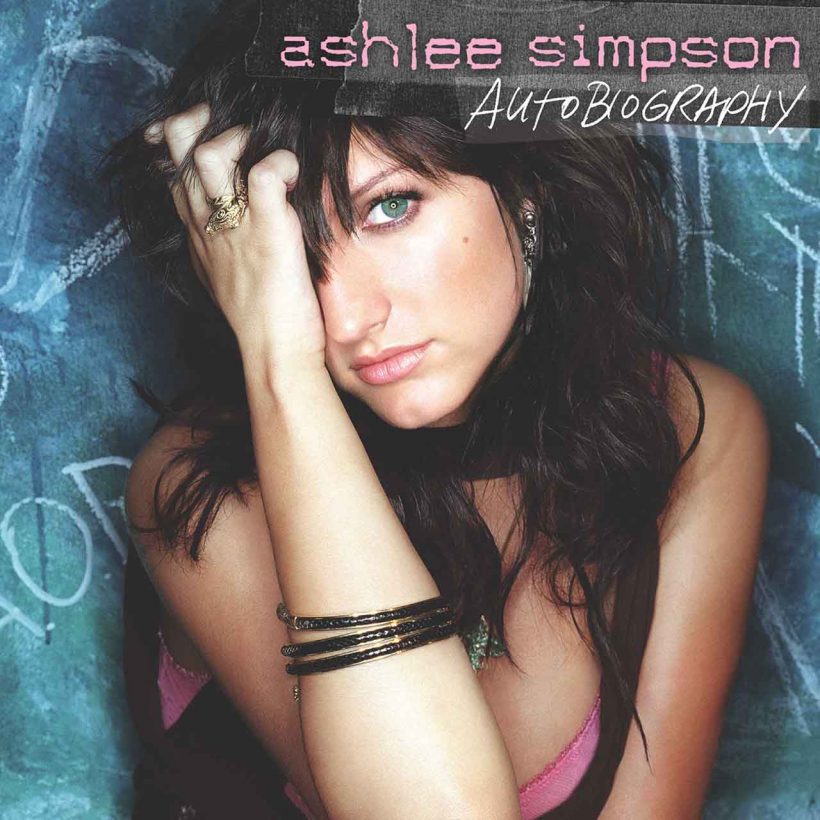‘Autobiography’: Ashlee Simpson’s Raw Search For Her Identity
It was an album that saw her step out of the shadow of her sister Jessica, and became a new rock hero for the 2000s.

When Ashlee Simpson emerged in the early 2000s, it was at the height of the MTV reality show era. Her sister Jessica had previously become a household name thanks to Newlyweds, her show on the channel, and the younger Simpson sister soon had her own program on the network. The Ashlee Simpson Show had a stark difference to many other productions of its time, though – instead of focusing purely on the minutiae of the budding musician’s daily life, it followed her in the studio as she worked on her debut album, Autobiography.
It was that premise that convinced Simpson – who positioned herself as going against the grain of her mainstream pop peers at that moment – to allow cameras to follow her around at all. “I thought that was kind of cool – you’re actually seeing a deeper look into how this album got made,” she told Seventeen magazine at the time.
Order the 20th anniversary edition of Ashlee Simpson’s Autobiography now.
Autobiography – and, by extension, The Ashlee Simpson Show – captured the star’s experiences over her late teens, from heartbreak and new love to her relationship with her family. Working with producer John Shanks (Nelly Furtado, Goo Goo Dolls, Jon Bon Jovi) and songwriter Kara DioGuardi (Avril Lavigne, Kelly Clarkson, Gwen Stefani), she mined these incidents and emotions to create a debut album that coursed with equal parts angst and youthful abandon. “Every single day, I was thinking of what I was going through and would write songs about it,” Simpson explained to MSN, noting that she “wasn’t afraid to say that I was hurting and how I got over it” in another interview.
Drawing on inspirations like Chrissie Hynde and Joan Jett, the record was characterized by powerful riffs, underpinning Simpson’s raspy, raw delivery. In its title track – which also served as the theme song for The Ashlee Simpson Show – the star directed her lyrics to those who thought they knew everything about her. Where much of the album tackled a break-up, “Pieces Of Me” detailed happier moments in romance, namely finding happiness in a new relationship, while fellow single “La La” took things into more fun, free territory.
The grungy “Shadow,” meanwhile, captured a big driving force of Simpson’s musical identity – feeling like she was in her sister’s shadow and trying to find her own individuality amid those feelings. “When I was around 14, I hadn’t grown into my face yet and was all awkward and ugly, and I had this beautiful pop-star sister,” she told Cosmopolitan in 2005. “So there was a time when I didn’t feel great about myself. The song is about coming to the point where I’m like, ‘Okay, I love who I am, and I’m happy being this person’.”
The identity that Simpson discovered in Autobiography was not just a personal triumph but a commercial success. The album became the biggest debut album by a female artist in 2004 and one of the Top 10 best-selling albums of the year. Within a week of its release, it was certified platinum by the RIAA and topped the Billboard 200 chart, contributing to Shanks winning Producer Of The Year at the Grammys in 2005. “I just hoped my album charted,” Simpson admitted, “I didn’t expect it to be number one in the country! It was a huge shock.”
It shouldn’t have been. Listening to Autobiography all these years later, it’s easy to hear that Simpson tapped into something deep and emotional, both for herself and her fans. It’s no surprise that these songs still resonate today.
Order the 20th anniversary edition of Ashlee Simpson’s Autobiography now.












